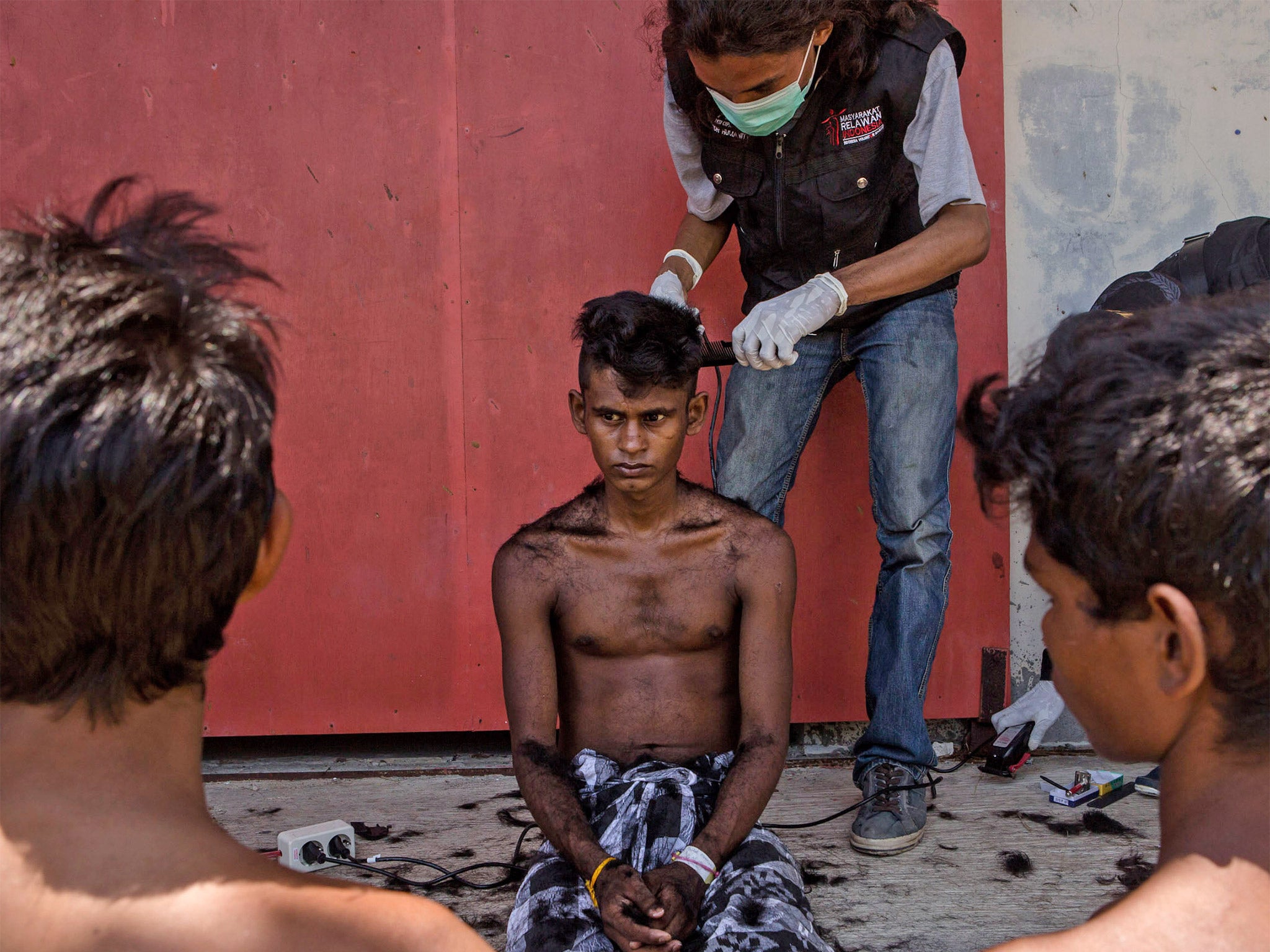Burma's opposition demands government gives citizenship to Rohingya refugees adrift on the Andaman Sea
Muslims must be given their human rights, say opponents of Buddhist chauvinism

The Burmese government has so far disclaimed any responsibility for the fate of the thousands of Rohingya refugees adrift on the Andaman Sea. But now the spokesman for the National League for Democracy, Burma’s most important opposition party, has demanded a long-term solution to the problem: giving them citizenship.
In an interview with The Independent, U Nyan Win said: “The problem needs to be solved by the law. The law needs to be amended. After one or two generations [of residence] they should have the right to be citizens.”
The statement was a bold break with the NLD’s usual ultra-cautious approach to an issue regarded as highly inflammatory in this Buddhist-majority country – Buddhists constitute 85 per cent of the population – in which atavistic fears of Muslim domination have been whipped up by chauvinistic Buddhist preachers.
Speaking to AFP earlier, he said: “If [the Rohingya] are not accepted as citizens, they cannot just be sent onto rivers. They can’t be pushed out to sea. They are humans. I just see them as humans who are entitled to human rights.”
The new compassionate tone was echoed by one of the country’s most prominent Buddhist monks, U Pinnyasiha, who told The Independent: “The Burmese government refuses to take responsibility for this problem because the Indonesians and Thais are using the word Rohingya instead of Bengalis. But they must take responsibility.
“These people in boats are in really big trouble, I feel very sorry for them and as a Buddhist monk I would really like to help them. The government should solve the problem in a dignified manner. Together with the Asean (Association of Southeast Asian Nations) governments, they should decide how to solve the problem peacefully.”
U Pinnyasiha is an outspoken opponent of the anti-Muslim rhetoric which has flooded out of some Burmese monasteries in the past three years, and has suffered for his views. A powerful council of senior monks appointed by the government, known as the “Mahana”, has posted a letter online banning him from preaching, but he says he will not observe it until the letter reaches him in person – and if it does, he will sue the government for infringing his rights.
He said the government’s hostility derives from fear. “The government is really afraid of the monks because they have great influence on the people, and the government doesn’t want the monks to be united. If they are united, they can easily influence the people and that could force the government to change its ways.” The so-called “Saffron Revolution” of 2007 saw hundreds of thousands of monks marching in defiance of the government through city streets. To prevent a repeat, the quasi-democratic government – composed of former senior army officers – has kept the clergy on a tight leash.
On Buddhist hostility to Muslims, U Pinnyasiha said: “The way of Buddhism is saving people, helping people, showing loving-kindness to all people, regardless of skin colour or religion. So people who refuse to show loving kindness to certain people are going against Buddhism.”
It remains to be seen if the desperate plight of the Andaman refugees can bring about a change in the attitude. The sticking-point is the word “Rohingya”: Burma’s political establishment refuses to accept that they are a distinct ethnic minority. But whatever they are called, thousands of long-term Muslim residents of Burma – entitled, according to U Nyan Win, to citizenship – now risk slow death at sea.
Does Aung San Suu Kyi – notoriously reticent on the Rohingya issue – share her party’s spokesman’s views about their right to citizenship? “I don’t know,” he said.
Join our commenting forum
Join thought-provoking conversations, follow other Independent readers and see their replies
Comments